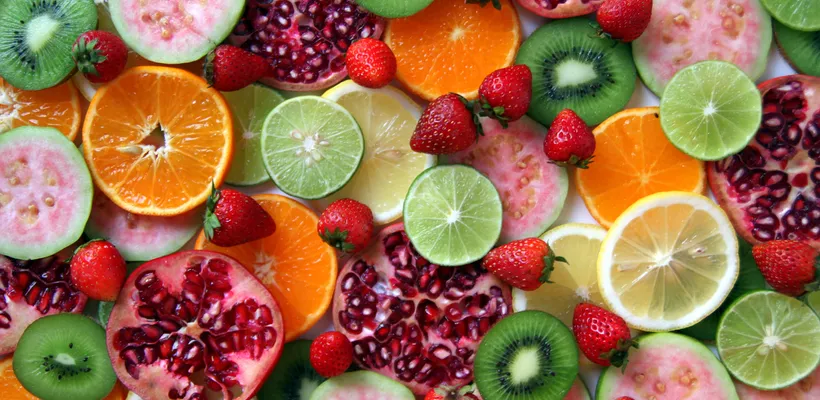Is Fructose bad for you?

According to researchers, the sugar found in fruit, called Fructose, could increase cravings for high-calorie foods.
A small experiment, conducted by researchers at the University of Southern California was attempting to find out more information on how different variants of sugar may affect us. The experiment in which 24 volunteers drank a sugary, cherry-flavoured drink sweetened with either Fructose or Glucose in an attempt to find out the individuals who consumed the drink containing Fructose experienced an increased craving for fatty foods.
Not long after the experiment, all 24 volunteers were asked to rate how hungry they were. When it was compared to those whose drink was sweetened with glucose, the fructose drink led to increased hunger and desire for snacks such as sweets and biscuits.
A couple of days later, the same group of volunteers came in again to repeat the experiment. The only difference this time was the type of sweetener added to their drink.
Afterwards, they underwent brain scans while being shown pictures of high-calorie foods which included biscuits, sweets, burgers and pizza – as well as several photographs of buildings which were acting as “neutral” images. The scans showed that those who had been drinking fructose, rather than glucose responded more strongly to photos of food. It was also reported more food cravings for treats shortly after consuming fructose.
The findings suggest different sugars may affect us differently. Although experts in nutrition say more studies are needed before a conclusion can be made.
But whole fruit is good for us and contains much more than simply fructose. Fruit contains fibre, vitamins and minerals and is a healthy alternative to foods high in added sugars and fat.
It is said we should all think carefully about how much sugar we eat. Most adults and children in the UK eat too much sugar and The World Health Organization says eating a small amount per day which they say is around six teaspoons – is fine.
The sugary foods that experts say we should cut down on are sweets, cakes, biscuits, chocolate, and some fizzy drinks and juice drinks. Even pure fruit juices contain quite a large quantity of sugar so a 150ml glass per day is more than enough, according to the British Dietetic Association.
Sugar in food appears under many different names in the list of ingredients such as: maltose, glucose, fructose, sucrose, lactose, dextrose, honey, syrups, treacle, sugar cane and sugar beet so it is advised to check the ingredients beforehand.
Fructose, which is used in sweeteners has been blamed it for rising rates of obesity in recent years, although evidence for this theory is lacking as it has also been highlighted that since fructose is sweeter than normal table sugar, it results in less being needed to achieve the same sweetness which then results in less calories being consumed.
Government statistics state we all need at least 5 portions of fruit and vegetables a day. For all those people that do not consume enough Fruit and Vegetables in their regular diet to ensure they get the correct combination of nutrients and vitamins a supplement may be beneficial (although not a better substitute).
Click on the attached link to see a full range of vitamins and minerals at everyday low prices.